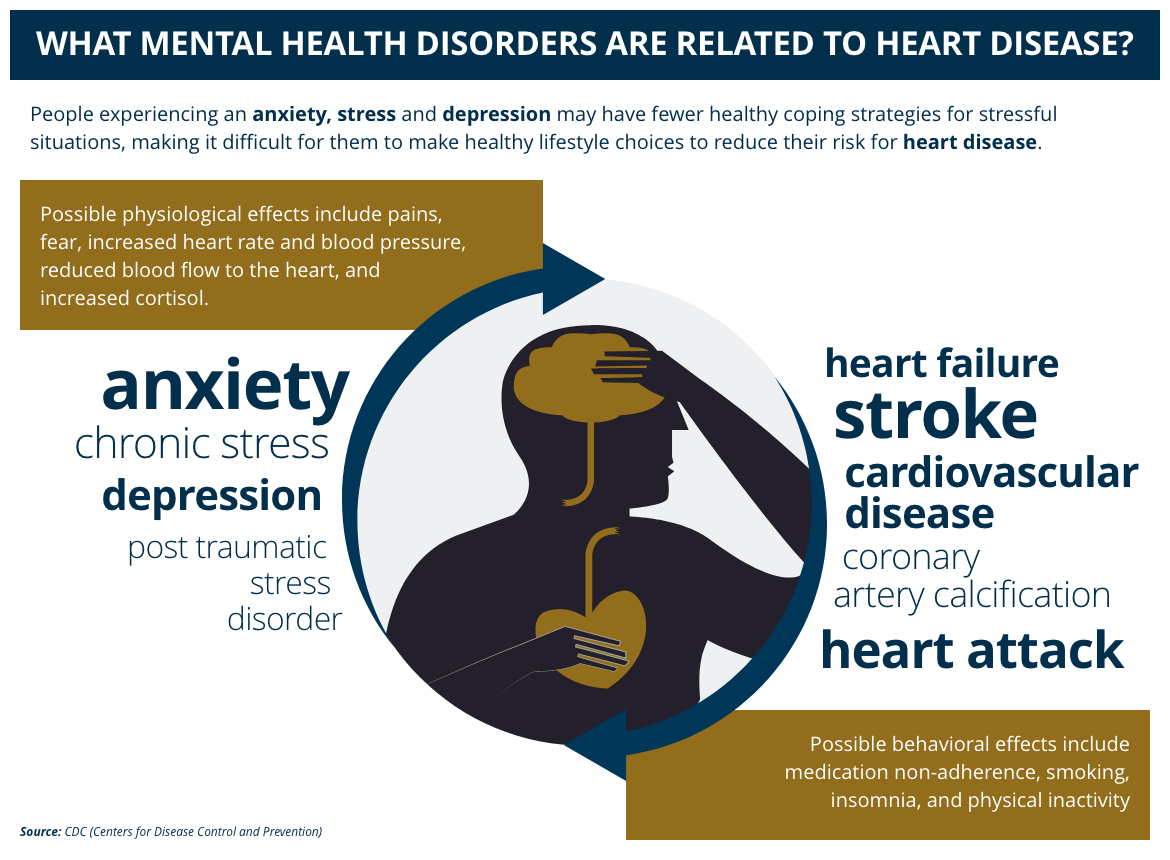24 Feb 2023
Why Are Young People Having More Heart Attacks?
Estimated read time: 4 minutes
Until recently, heart attacks were thought of as something that only affected older adults, considered rare and linked to genetic factors among younger people. But this epidemiological panorama is now changing. Today, one in five heart attacks occur in people 40 years of age or younger.
Although heart attack is traditionally linked to obesity and diabetes, a relatively new area of research has begun to identify mental health signs such as anxiety, stress, and depression as potential heart attack triggers in young adults.
For experts, this is cause for concern, since mental illness has increased dramatically among young people. In the United States, 48% of adults between the ages of 18 and 25 show signs of anxiety and depression. In Latin America, 5% of the adult population suffers from depression, and although the rate and age range varies by country, one common denominator persists: a stigma surrounding mental health issues. This can discourage people from seeking care and preventing unexpected consequences such as heart attacks.
Compounding the problem is the issue of stress among young people, defined as emergent adults — a mental health condition often dismissed as “tension” or “nerves” and caused by factors such as the social pressure to succeed, difficulties finding a stable job or housing, and crises related to identity, relationships, and self-esteem. All of these, we now know, can contribute to poor cardiovascular health.
Risk Factors That Begin in the Brain
In particular, a 2023 study defined depression as a nontraditional risk factor for cardiovascular disease. In fact, the conclusion of the study — which analyzed the data of approximately 594,000 adults between the ages of 18 and 49 who took part in the Centers for Disease Control and Prevention's Behavioral Risk Factor Surveillance System — was that depression and poor mental health are associated with premature cardiovascular disease (CVDs) and poor heart health among young adults.
These negative health outcomes can be the direct result of biological processes or come about indirectly as a result of risky habits.
People who experience depression, anxiety, stress, and even post-traumatic stress disorder for long periods of time can develop certain physiological effects in the body, including higher cardiovascular reactivity (such as an increase in heart rate and blood pressure), reduced blood flow to the heart, and high cortisol levels.
With time, these physiological effects can lead to calcium build-up in the arteries, which can trigger metabolic disorders and heart disease. At the same time, depression can lead to elevated levels of stress hormones and cause inflammation, both of which are risk factors for heart disease, according to the study.
Further, anxiety, stress, and depression — which are on the rise among young adults — can lead people to adopt risky habits and behaviors such as smoking, not engaging in physical activity, or failing to take prescribed medications. People who suffer from symptoms of anxiety or depression may find it difficult to choose healthy lifestyles that promote a lower risk of heart disease.
How to Prevent a Heart Attack at a Young Age
Many of the symptoms associated with mental health issues are relatively common and do not always signal a serious illness or a trigger of heart disease. Only a medical or mental health professional can make a diagnosis.
Still, there are some fundamental prevention strategies to keep in mind. Experts recommend the following:
- Recognizing the signs and symptoms of heart disease as well as mental health disorders
- Educating yourself on the health conditions that raise the risk of CVDs
- Knowing your family history of heart disease and whether there are generic factors that elevate your risk
- Talking to a health professional about possible treatments for any mental illnesses that could impact your cardiovascular health
- Maintaining a healthy lifestyle
Given the overlap of symptoms of heart disease such as palpitations, chest tightness, and shortness of breath in people who are otherwise healthy, including those due to stress, it is very difficult for doctors and their patients to identify mental health as a causal or related factor.
This is especially true when the patients are young and certain health conditions are ruled out due to age bias.
For this reason, it’s essential to establish a multidisciplinary and integrated health approach that involves different medical professionals, including mental health specialists, psychologists, psychiatrists, nutritionists, and experts in addiction as well as primary care doctors and cardiologists in order to support mental health and lower the risk of CVD.
Focused interventions that improve mental health can also help reduce the risk of heart disease.
Remember, always consult with your physician or health care professional to determine the best options for your body and health and to answer any questions you may have regarding any medical matter.




